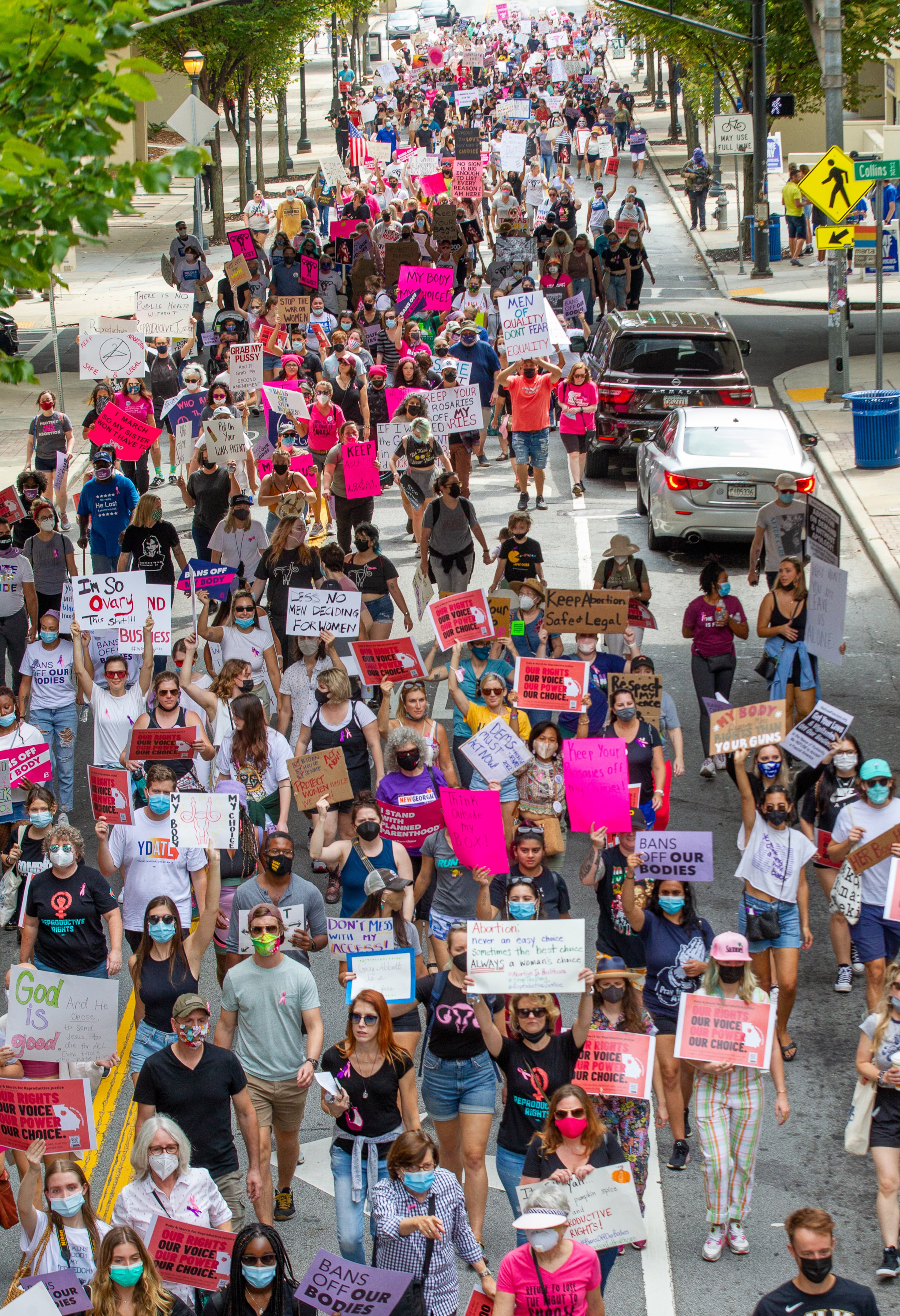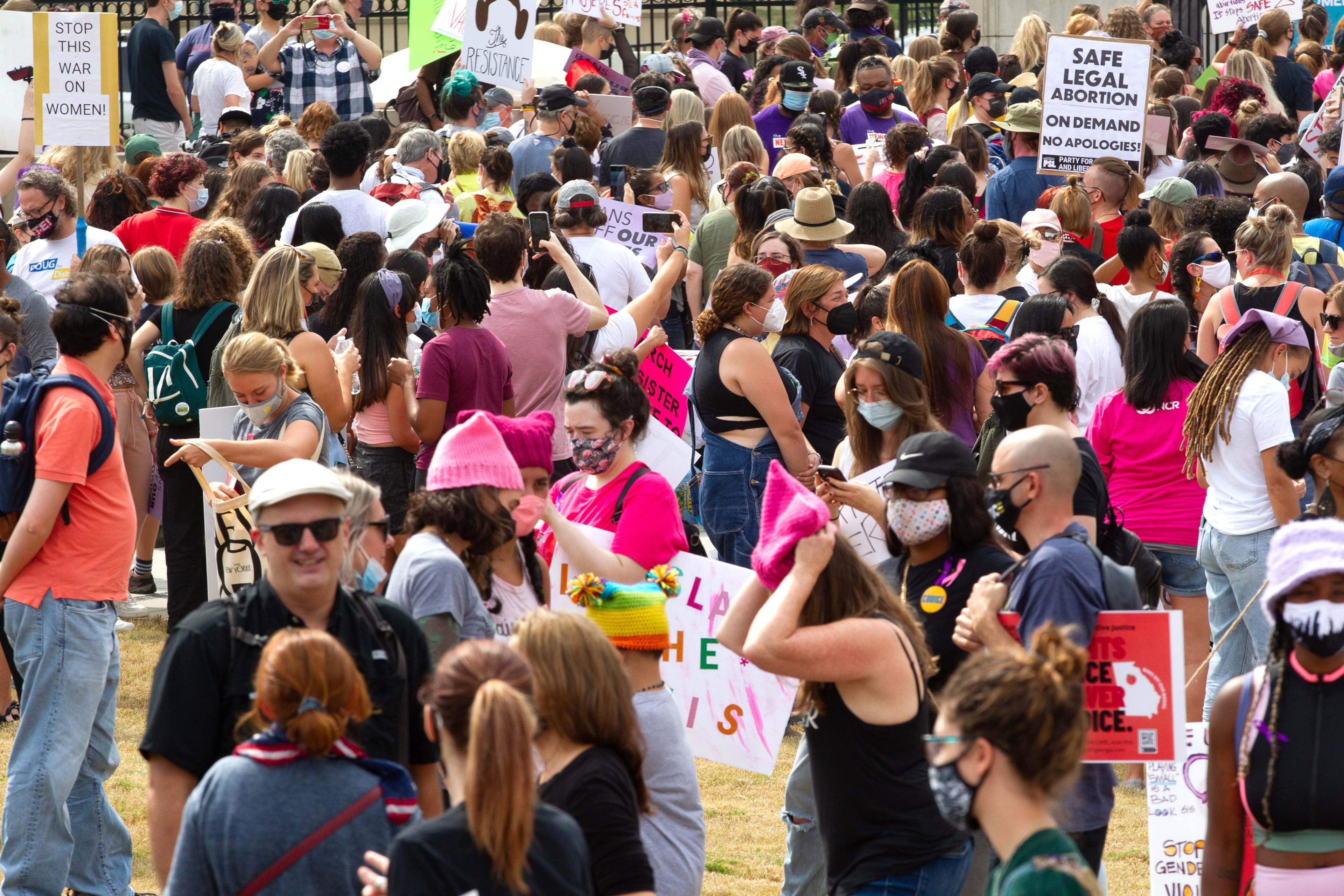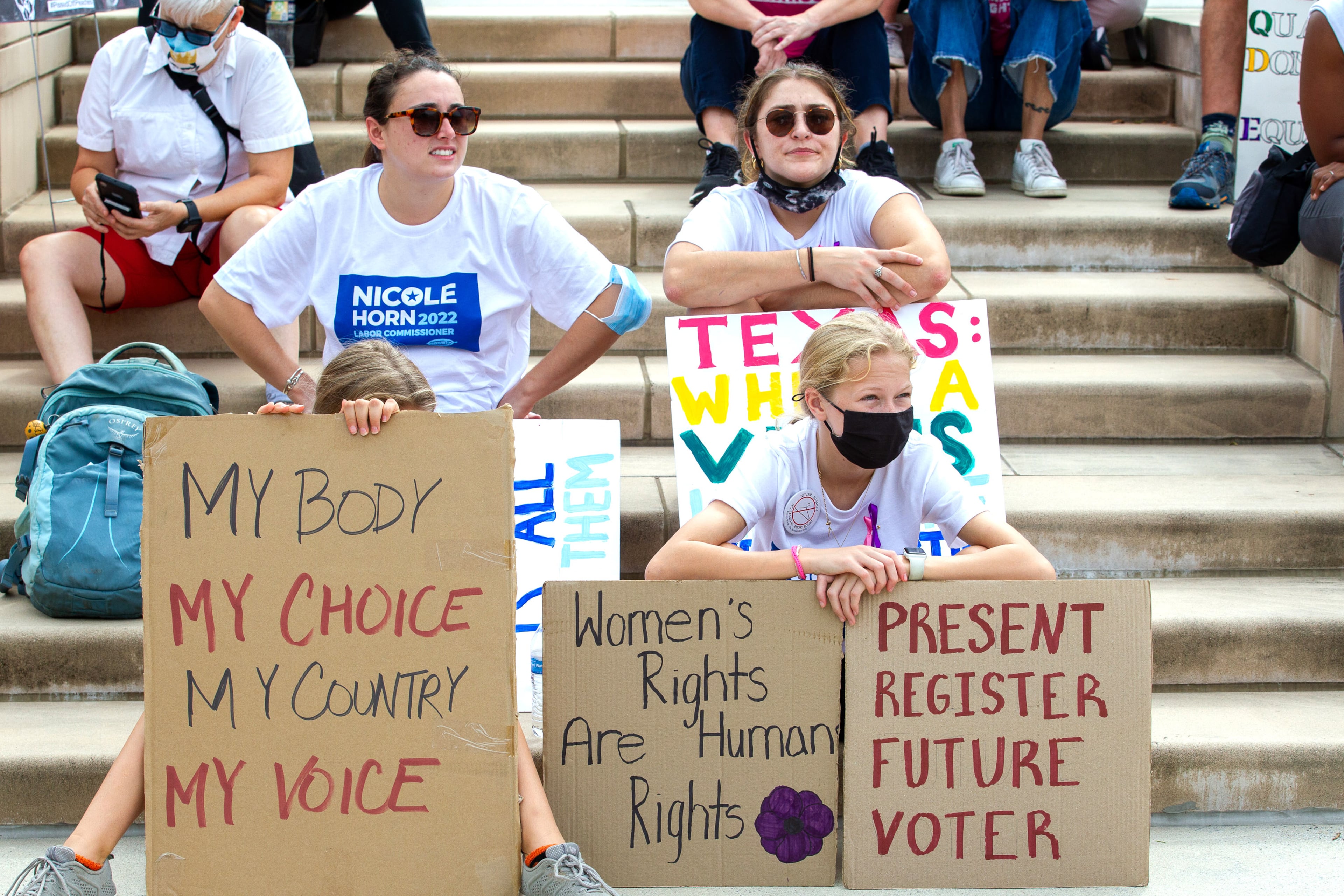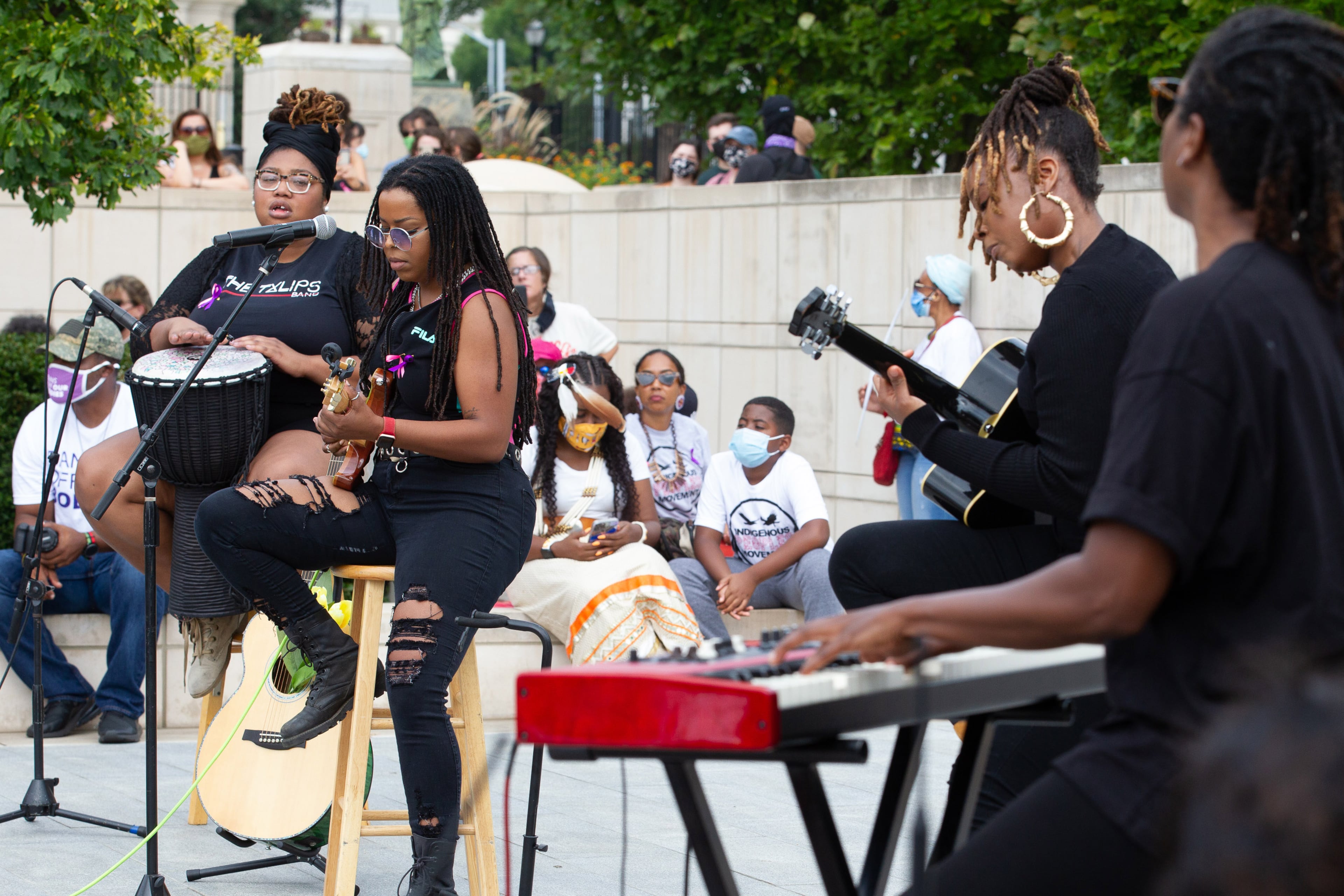‘Bans off our bodies’: Georgians march against new abortion restrictions



















Crowds swelled around the state Capitol on Saturday to show their support for reproductive rights.
The march, which drew a diverse group that filled entire city blocks as it advanced, was one of hundreds planned around the country and coincided with a demonstration leading to the steps of the U.S. Supreme Court in Washington, D.C. The Women’s March gatherings come days ahead of the start of a new term for the court that’s expected to be highly consequential for abortion access.
Marches were also held in Alpharetta, Macon, Savannah, Statesboro and in North Georgia.
The events happened to come a day after the Biden administration urged a federal judge to block Texas’ abortion law, the nation’s most restrictive, which has banned most of the procedures there since early September. The Texas law is one in a series that will give the Supreme Court a chance to uphold or overrule the landmark Roe v. Wade decision, which made abortion legal for generations of American women.
A panel of three judges on the 11th U.S. Circuit Court of Appeals said last month it was putting on hold a decision on challenges to Georgia’s 2019 anti-abortion bill. The panel said it would wait until the Supreme Court rules on a challenge to the constitutionality of Mississippi’s ban on most abortions after 15 weeks of pregnancy. The GOP-pushed Georgia law bans the procedure after a doctor can detect fetal cardiac activity, which is typically six weeks or so into a pregnancy, before many women know they are pregnant.
“This moment demands that we fight for a future where abortion care is there for everyone who needs it,” organizers of the Atlanta march had written, beckoning demonstrators to the event. “We know #AbortionJustice can’t wait.”
Women — and others — there called for the government to stay out of their reproductive decisions.
A popular sign: “BANS OFF OUR BODIES.” Some carried and chanted slogans that were more blunt. One woman’s sign said, “MY UTERUS, MY RULES.”
The Rally and March for Reproductive Justice was planned by more than two dozen partner groups and sponsors. The gathering filled Liberty Plaza, the public area for demonstrations across the street from the Capitol downtown.
Georgia lawmakers may attempt to emulate Texas’ law, which bans abortions at about six weeks from the patient’s last menstrual period and allows citizens to sue those who help a woman receive an abortion outside the law. Successful plaintiffs will receive $10,000 and have their legal fees reimbursed.
Georgia Senate President Pro Tempore Butch Miller has said he’s planning to pass portions of the Texas law during the next legislative session. The Gainesville Republican, who is running for lieutenant governor against an opponent backed by former President Donald Trump, said he’s working with anti-abortion groups on the legislation.
The Women’s March has become a regular event, including in Atlanta — although interrupted by the coronavirus pandemic — since millions of women turned out in the United States and around the world the day after the January 2017 inauguration of Trump. Trump endorsed punishing women for getting abortions and made appointment of conservative judges a mission of his presidency.
Information from The Associated Press was used in this article.


